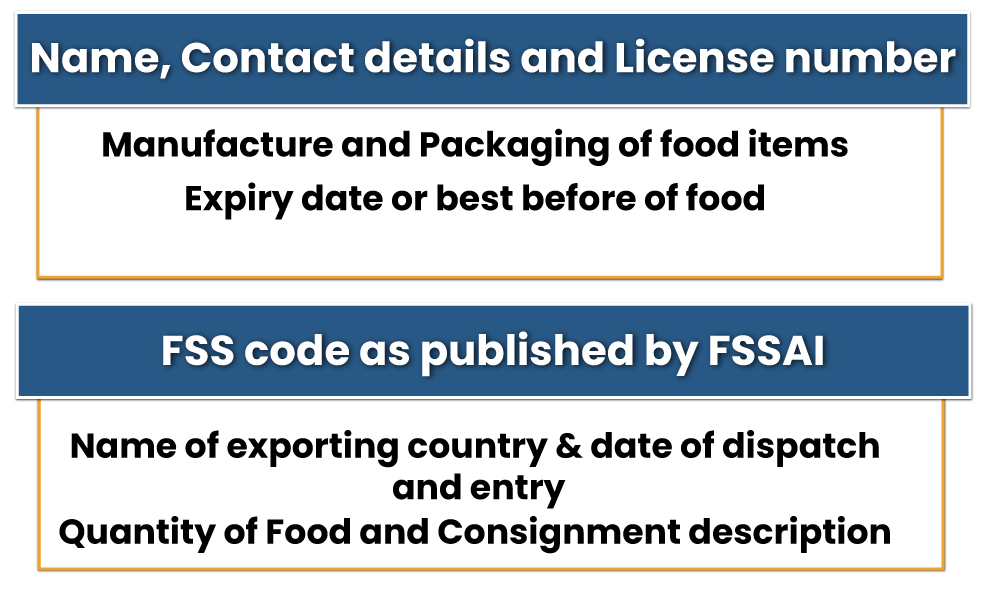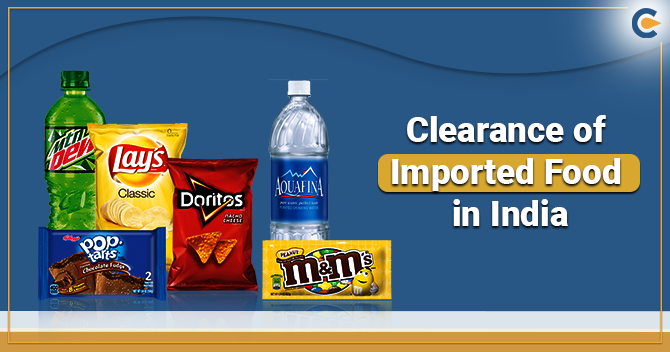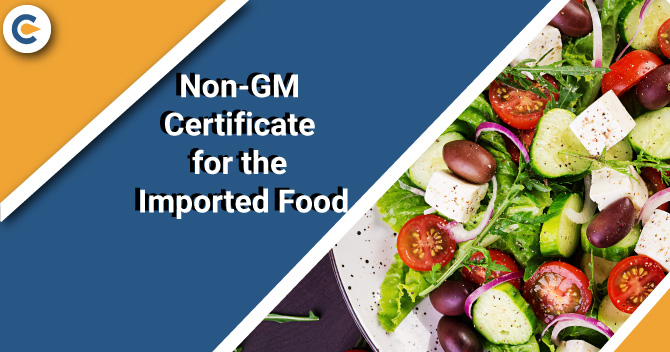A variety of food products are imported in India from different countries. It is very important to make sure that the imported food is safe and hygienic before making it accessible to consumers.
There are authorized officers as appointed by the Food Safety and Standards Authority of India to keep a proper eye and verify all the food articles that are being imported at various ports in the country. The food importers have to follow the mandatory guidelines and satisfy different norms and conditions to get the clearance of food while entering the country.
Food Import Clearance System under FSSAI
The food authority FSSAI which is the regulator of food in India has norms for the import, labeling and packaging of products that are imported to India so as to put an end to the problems of sub-standard products that are entering the country.
The FSSAI has the Food Safety and Standards (Food Import) Regulations, 2016 for operating the process of food importers. Also, due to Covid-19 pandemic the Food Safety and Standard Authority of India (FSSAI) decided to notify ‘Food Import Clearance System’ as essential service during the lockdown.
Provisions for Clearance of Imported Food in India
Section 25 of the Food Safety and Standards Act, 2006 contains provisions for import of food articles in India and says that no person can import the food product:-
- Which is not safe and improperly branded or sub-standard food or if any extraneous matter is contained in the food,
- Where license is required for importing the food under any Act or regulations, except where it is according to the conditions of the licence, and,
- When any imported food is contravening any provision of this Act or of any other rules or regulation made under any other Act.
Further the FSSAI has notified the Food Safety and Standards (Import) Regulations, 2017 on March 9, 2017 mentioning the provisions for import of food in India and packaging and labelling of such imported food items which are as follows:
License or Registration
All food importers should have the Import Export Code for importing food into India. These food importers should get themselves registered with the Director General of Foreign Trade. And they will have to obtain a license for import from the Central Licensing Authority in conformity with provisions of the Food Safety and Standards (Licensing and Registration of Food Businesses) Regulations, 2011.
Imported Food’s Shelf Life
Only the food articles which have a valid shelf life of not less than 60% during the import shall be cleared by customs while entering the country. The shelf life is the period between the manufacture date of the food article and the “Best Before” and “Expiry date”, whichever is earlier.
If in any case the imported food has less than 7 days of shelf life then the importer has to present an application to the customs for furnishing them with a provisional certificate of no-objection. Subsequently, only when the food articles are satisfying with the requirements of the standards then can the authorized officer allow the import of the food considering the no-objection certificate
Imported Food’s Packaging and Labelling
The packaging and labeling has to be according to the regulation, if not then the authorized officer shall decline the clearance by issuing a non-conformance certificate and such goods shall not be allowed to be imported in the country.
Sampling of food and Analysis
The food articles shall be taken out for sampling and shall be tested and proper analysis of the food will be done by the customs. If any portion of the food article is not satisfying the criteria in the guidelines then the authorized officer shall decline that part and allow the rest of them for clearance.
Read our article:How to Check FSSAI Application Status?
No Objection Certificate and Non-Conformance Certificate
The authorized Officer may issue a “No-objection certificate” if the food articles are satisfying all required provisions that are valid and are qualified for import. This certificate is valid for 30 days.
And if in case food article has failed to comply with the requirement then the authorized officer shall issue a ‘Non-conformance certificate’ citing the reasons of non conformance to the food importer, thereby, declining the import of such food.
A Framework Based on Risk
The Food Safety and Standards (Import) Regulations, 2017 endows with a risk based framework and a risk based inspection system under which FSSAI may timely evaluate the risks related with articles of food.
FSSAI has the responsibility to ask the laboratories in exporting countries for former testing of food samples and then only such food articles shall be imported into India. FSSAI can also enter into a memorandum of understanding with significant agencies in the exporting countries for clearance of food imports.
Requirements to be Fulfilled by the Food Importer


Authorities for Review Process of Imported Food at the Entry Ports
- First Committee– This is chaired by director at imports, FSSAI . Importer can file review application with the grounds of appeal to the Director against the non conforming certificate issued by authorized authority.
- Apex Committee: This is chaired by Chief Executing Officer[1], FSSAI. If the importer is not satisfied with the First Committee he may file a review application with the grounds of appeal to the Apex committee.
Steps Taken for well Organized Food Import Clearance
- FSSAI has simplified the process of advance filing of bill of entry in Food Import Clearance System (FICS) from customs to minimize the clearance time.
- FSSAI has allowed provisional Non Objection Certificate for imported pre-packaged import goods so as to reduce clearance time and also heavy congestion at the entry ports.
- 49 laboratories have been identified across the country for testing and analyzing the food samples and the time taken while testing the sample is continuously monitored.
- FSSAI has developed Food Import Rejection Alert (FIRA) for capturing non- compliances of all the imported foods.
Conclusion
The FSSAI is strict with the guidelines for importing the food articles. The necessary criteria of the clearance have to be mandated with for allowing the import of the food articles. Hence, the Customs Authorities are responsible for scrutinizing the documents, conduct proper inspection, perform sampling and testing in order to decide whether the imported food articles are in conformity to the proper safety and quality norms and standards as has been established and given under various Food Safety and Standards Regulations.
The Food Safety and Standards (Import) Regulations, 2017 thus provides with a complete procedure for the clearance of imported food articles inside India and also make sure that efficient inspection and investigation of food articles are regularly done to guarantee that life and health of consumers are protected and safeguarded.
Read our article:Regulation of FSSAI on Vigilance & Safety of Packaged Foods











